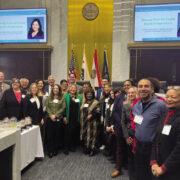Decision expected by June 2016
ON April 18, 2016, the US Supreme Court heard oral arguments from Texas and other states, as well as the Obama administration, concerning President Obama’s November 2014 Executive Action for DAPA and expanded DACA, which would enable qualified\eligible parents of US citizens and green card holders to obtain work authorization and be protected against deportation. His executive action also expanded the number of young people who would be eligible for DACA.
Soon after Obama announced these Executive Actions, Texas and other states filed a lawsuit, trying to block USCIS from moving forward. Texas claimed it was being harmed or injured because the state would be required to issue driver’s licenses to DAPA/DACA applicants, and, in the process, would lose money, because Texas subsidizes the cost of driver’s licenses. (In other words, it costs Texas more to issue driver’s licenses than the amount it charges people).
A federal court judge and the Fifth Circuit Court of Appeal sided with Texas, and put DAPA and DACA on hold, pending a written decision from the US Supreme Court, which is expected in June 2016.
During oral arguments, the basic issues are whether Texas and the other states have “standing to sue,” and if Obama exceeded his authority by effectively passing a law on immigration. I will briefly discuss these two issues:
Standing: One of the long-standing rules for suing in federal court is that the party must have suffered a legally recognized injury. In this case, Texas claimed that in subsidizing the cost of driver’s licenses, and being forced to issue driver’s licenses to DAPA and expanded DACA applicants, Texas has been injured. But the problem with Texas’s argument is this injury was “self inflicted.” Texas should simply charge people the actual cost of driver’s licenses, and it would not suffer a monetary loss. Instead, it appears Texas purposely created this injury, so it would have “standing” to sue. But if Texas’ theory is allowed to stand, the courts would be flooded with states bringing all kinds of lawsuits challenging the authority of the federal government, by creating self-inflicted injuries.
Executive branch cannot legislate: It is Congress’s job to pass laws, and the president’s job to enforce them. Texas and others are arguing Obama’s executive action is effectively making or passing immigration laws, which is under Congress’s power and authority, not the president’s. Obama has been arguing that for years he has been urging Congress to pass laws dealing with the immigration situation and the 11 million undocumented immigrants. Congress consistently refused to act. With the executive actions, Obama basically said that in enforcing the existing immigration laws, the executive branch does not have enough budget, personnel, courtrooms, etc. to deport everyone. Therefore, in exercising his discretion in enforcing the immigration laws, the executive branch was first going after the “high priority” undocumented (such as felons, terrorists, etc.) and conserve resources by not going after certain people, such as parents of US citizens and young people brought to the US at an early age, who pose no threat to US safety or security. Therefore, he is not passing any law, but instead deciding best how to enforce the existing laws, until Congress finally acts.
With the death of Justice Scalia, the Court is split between four conservative and four liberal justices. If there is a 4-4 tie, then the lower court’s decision, halting implementation of DAPA, would stand.
Let’s hope at least one conservative justice understands that Texas does not have “standing” based on self-inflicted injuries, and Obama’s executive action is not making or passing an immigration law, but simply figuring out the best way to enforce the laws, given the limited resources and manpower.
* * *
Michael J. Gurfinkel is licensed, and an active member of the State Bar of California and New York. All immigration services are provided by, or under the supervision of, an active member of the State Bar of California. Each case is different. The information contained herein including testimonials, “Success Stories,” endorsements and re-enactments) is of a general nature, and is not intended to apply to any particular case, and does not constitute a prediction, warranty, guarantee or legal advice regarding the outcome of your legal matter. No attorney-client relationship is, or shall be, established with any reader.
WEBSITE: www.gurfinkel.com
Call Toll free to schedule a consultation for anywhere in the US:
(866)—GURFINKEL
Four offices to serve you: LOS ANGELES · SAN FRANCISCO · NEW YORK · PHILIPPINES


